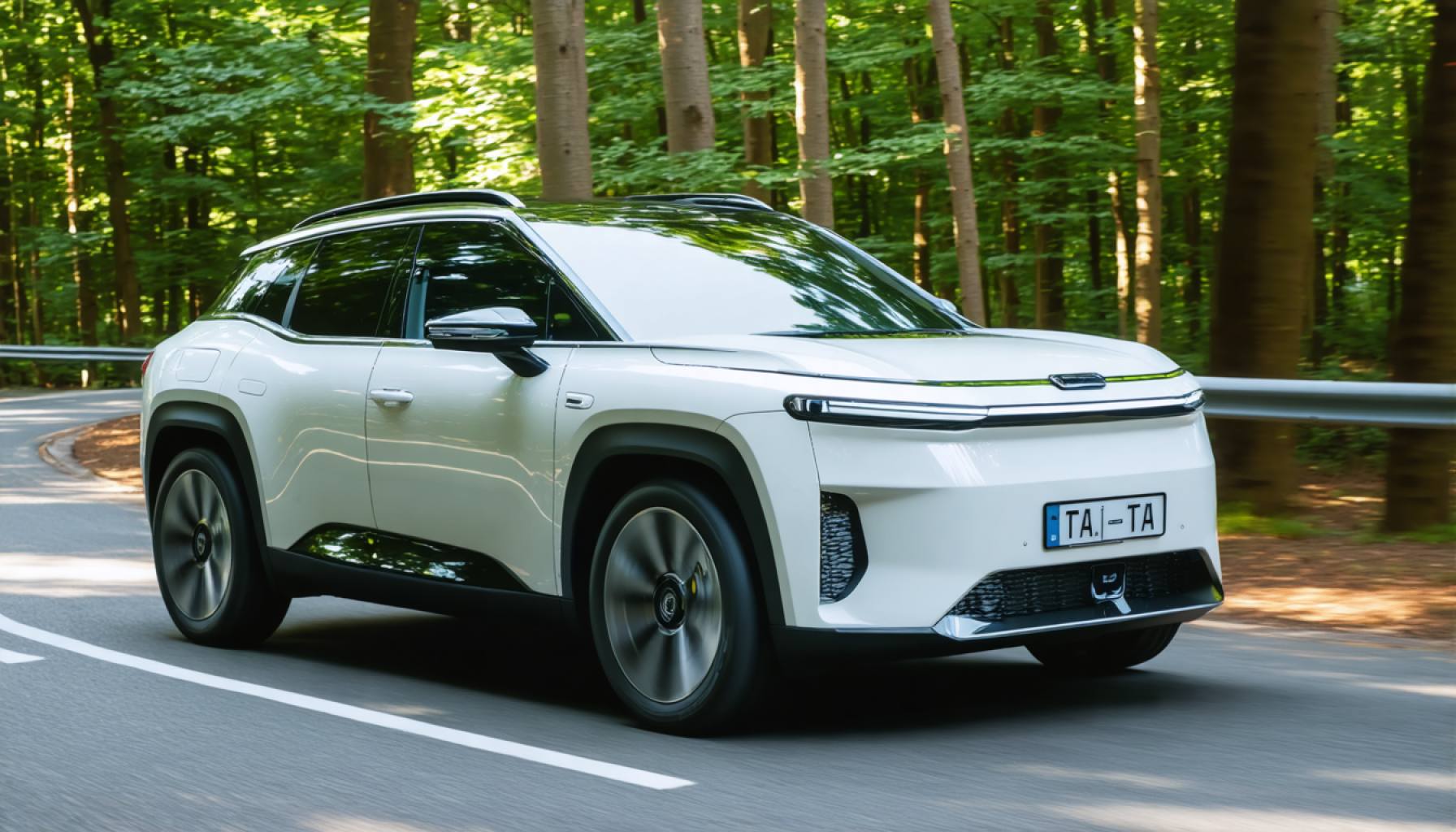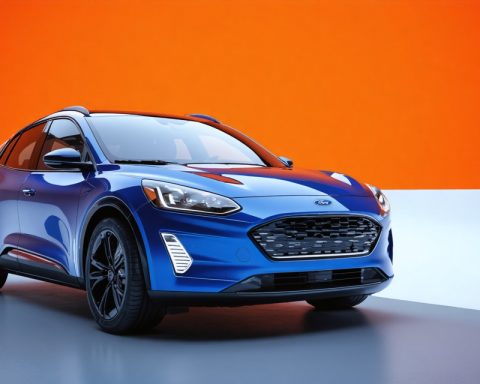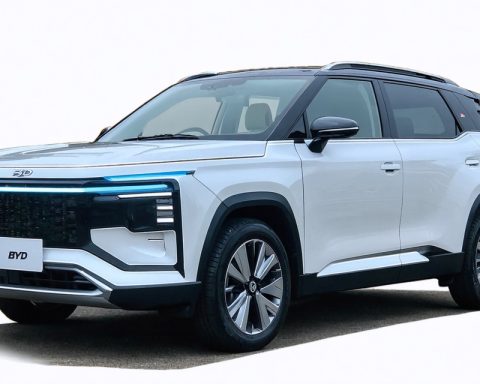- The Tai 3 is a mid-size electric SUV that combines practicality with innovation, ideal for urban families seeking sustainability.
- Features a sleek and aerodynamic design with dimensions of 4,605mm in length, 1,900mm in width, and 1,720mm in height for maneuverability and spaciousness.
- The interior offers comfort and technology, seating five with premium materials and advanced amenities for an immersive experience.
- Available in two variants: single motor (rear-wheel drive) and dual-motor (all-wheel drive), both with a CLTC range up to 501 kilometers.
- Emphasizes sustainability and efficiency, aiming to reduce ecological footprint while offering performance and innovation.
- The Tai 3 redefines family SUVs, presenting them as key components in the shift toward sustainable, responsible transportation.
A new chapter for electric vehicles drives into the spotlight with the Tai 3, a mid-size SUV that intertwines family-friendly practicality with the cutting-edge spirit of innovation. Unlike its luxury-focused, off-road cousins in the Fang Cheng Bao portfolio, the Tai 3’s design resonates with urban families seeking versatility without compromising on sustainability.
From the first glance, the Tai 3 captures attention with its sleek contour and aerodynamic profile, stretching 4,605mm in length and 1,900mm in width. Its 1,720mm height offers an ideal balance of spaciousness and agility, maneuverable enough to glide through city streets, yet robust enough for the open highway.
Inside, the cabin is a harmonious blend of comfort and technology. With ample seating for five, it provides the quintessential family travel environment. The interior boasts premium materials and advanced amenities—creating a sanctuary that is as much about an immersive driving experience as it is about convenience for its occupants.
Under the hood, the Tai 3 comes in two compelling variants, offering consumers the power of choice: a single motor for those preferring traditional rear-wheel drive dynamics, and a dual-motor configuration for an all-wheel driving prowess that makes every journey as adventurous as it is efficient. Both versions promise an impressive maximum CLTC (China Light-Duty Vehicle Test Cycle) range of up to 501 kilometers, ensuring that range anxiety is a concern of the past.
Yet, what truly makes the Tai 3 stand out is its commitment to sustainability and efficiency. This SUV isn’t just about moving forward; it’s about doing so responsibly, with an ecological footprint that places it at the forefront of environmentally conscious automotive engineering.
The Tai 3 redefines what a family SUV can be by uniting the comfort and familiarity that families value with the performance and innovation of electric technology. It’s more than just a vehicle; it’s a statement about where the future of transportation is headed. As it steers smoothly into the hearts of consumers, the key lesson it imparts is clear: the drive toward a sustainable future is not a compromise but a necessity. Embrace it, and the journey becomes as remarkable as the destination itself.
The Tai 3: Redefining the Family SUV with Electric Innovation
Navigating the evolving landscape of electric vehicles (EVs), the Tai 3 emerges as a family-friendly SUV that uniquely balances practicality with cutting-edge innovation. This vehicle is crafted for urban families desiring versatility without forgoing sustainability.
Key Features and Specifications
– Dimensions and Design: The Tai 3 measures 4,605mm in length and 1,900mm in width, with a height of 1,720mm. Its aerodynamic contour offers not just aesthetic appeal but also enhances its efficiency and performance on roads.
– Interior Comfort: Comfort meets technology in the Tai 3’s cabin, providing ample space for five occupants. The interior features premium materials and advanced tech amenities designed for an immersive and convenient driving experience.
– Powertrain Options:
– Single Motor Variant: Offers traditional rear-wheel drive dynamics.
– Dual Motor Variant: Provides all-wheel drive capabilities, catering to drivers seeking adventure and efficiency.
– Range and Efficiency: Both versions of the Tai 3 offer a robust range of up to 501 kilometers on a single charge, as per the China Light-Duty Vehicle Test Cycle (CLTC).
Sustainability and Innovation
The Tai 3 isn’t just about power and performance; it excels in sustainability. This SUV is engineered to minimize environmental impact, aligning with current trends favoring ecological responsibility in automotive engineering.
Market Trends and Predictions
With governments worldwide setting ambitious targets to reduce carbon emissions and promote electric vehicles, the market for family-oriented EVs like the Tai 3 is poised for growth. By 2030, it is expected that EVs will account for a significant portion of new car sales globally, driven by technological advancements and supportive policies.
Real-World Use Cases
The Tai 3 is designed for the contemporary family lifestyle. Whether it’s the daily commute, weekend getaways, or those spontaneous road trips, the SUV promises a blend of efficiency, comfort, and range reliability.
Pros and Cons Overview
Pros:
– Spacious and comfortable interior
– Long-range capabilities eliminating range anxiety
– Dual motor option offers excellent performance
– Commitment to sustainability
Cons:
– Initial purchase price may be higher than traditional SUVs
– Charging infrastructure varies by region, potentially impacting convenience
How-To Maximize Your Tai 3 Experience
1. Utilize Home Charging: Set up a home charging station to take advantage of off-peak electricity rates for cost-effective charging.
2. Stay Updated: Keep the car’s software updated to enjoy the latest features and improve vehicle performance and security.
3. Eco-Friendly Driving: Adopt eco-friendly driving habits, such as gentle acceleration and regenerative braking, to maximize energy efficiency.
Conclusion and Quick Tips
The Tai 3 exemplifies the modern shift towards sustainable and innovative motoring. A few quick tips for prospective owners:
– Consider your typical drive range to decide between the single and dual motor.
– Investigate local incentives or rebates for EVs that may reduce the initial cost.
– Plan routes to include charging stations for long journeys to optimize range.
For more insights on the latest in automotive innovation, visit BBC, and for industry trends, head to CNN.














